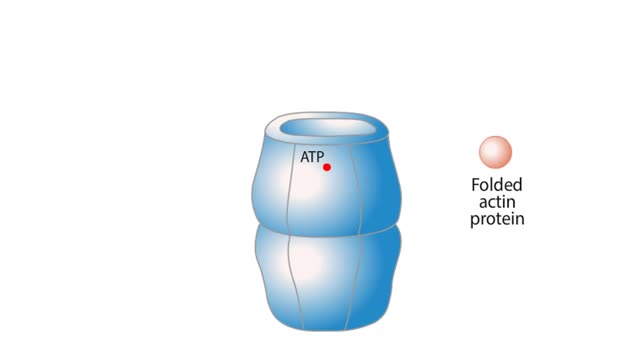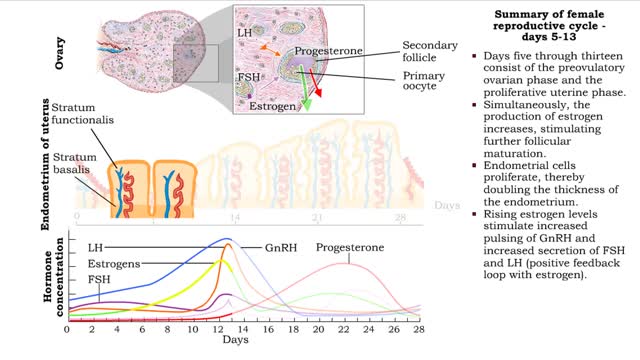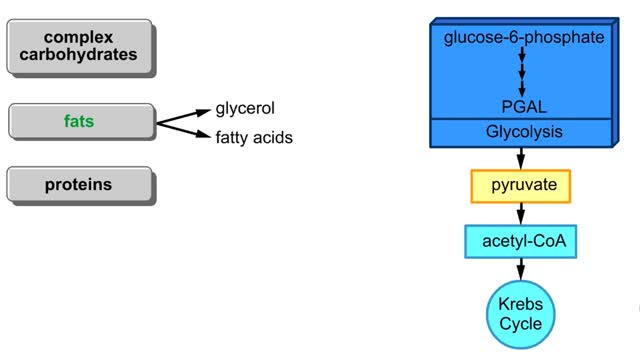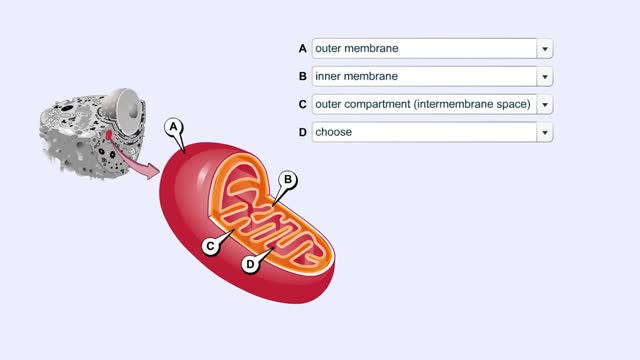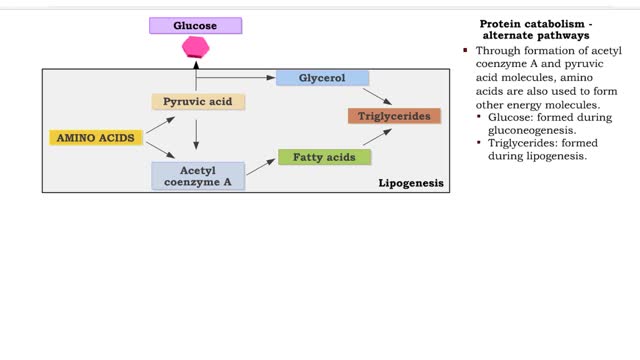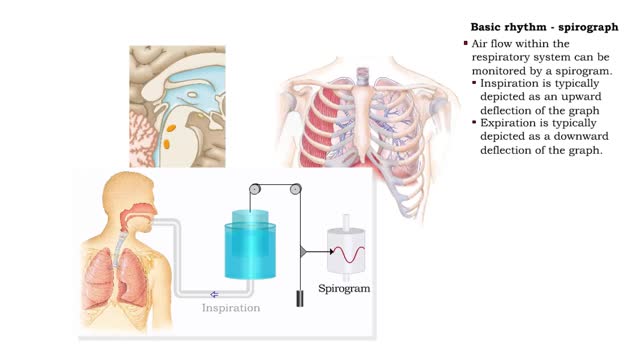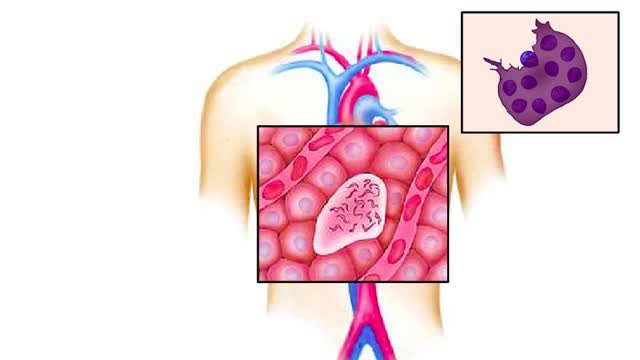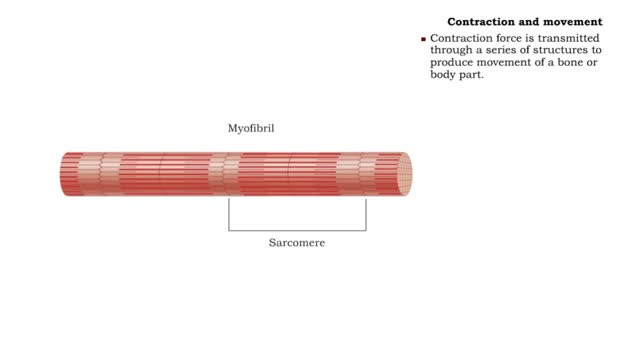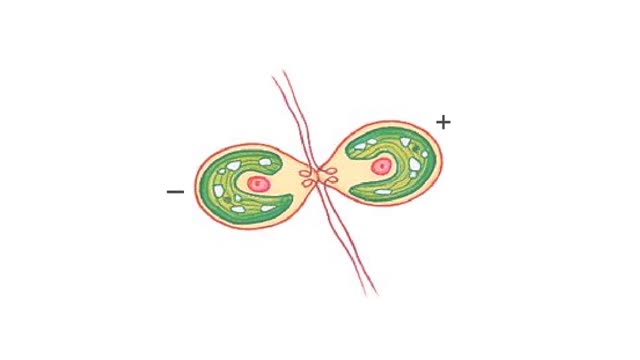Search Results
Results for: 'C4 cycle'
By: HWC, Views: 10527
The life cycle of a typical protein begins with its synthesis on a ribosome. As the polypeptide chain grows, molecules of a chaperone protein bind along its length. This prevents misfolding of the nascent polypeptide. ATP binding causes chaperone release. For most proteins, the polypeptide th...
Summary of female reproductive cycle days 1-28
By: HWC, Views: 11390
■ The first five days of the cycle include the menstrual phase. ■ Progesterone and estrogen levels are low. ■ Menses occurs. ■ GnRH pulses more frequently promoting FSH and LH levels to rise. ■ Primary follicles are stimulated to develop. ■ Days five through thirteen consist o...
By: HWC, Views: 5108
Points at which organic compounds enter the reaction stages of aerobic respiration. Complex carbohydrates are broken down into simple sugars, such as glucose. They become the substrates for glycolysis. If your body doesn't need to burn glucose for energy, glucose-6-phosphate can be co...
Mitochondrial Structure & ETC Protein Complexes (Protein Complexes and Electron Transport)
By: HWC, Views: 10498
The energy carrying molecules, NADH and FADH2, that were generated in glycolysis and the Krebs cycle, now are processed in the mitochondria where their high energy electrons are deposited in an electron chain complex located in the inner mitochondrial membranes. These high-energy electrons now dr...
Protein catabolism (Krebs cycle) and Protein anabolism (protein synthesis)
By: HWC, Views: 11448
• Deaminated acids are brought into the Krebs cycle to be oxidized to CO2 and H2O. • Before entering the Krebs cycle, the deaminated acids are converted into intermediate products (pyruvic acid, acetyl coenzyme A, carbonic acids). • In the Krebs cycle, amino acids are oxidized to form r...
Basic rhythm - control centers in medulla oblongata, spirograph and normal tidal cycle
By: HWC, Views: 10744
• Normal ventilation is rhythmic and involves continuous cycles of inspiration and expiration. • Various regions of the brain closely regulate this rhythmic pattern of ventilation. • The rhythmicity area in the medulla regulates the basic rhythm of ventilation. • The medullary rhy...
Apicomplexan life cycle Animation
By: HWC, Views: 5283
Malaria is caused by the sporozoan, Plasmodium. It is transferred to humans by mosquitoes. When an infected mosquito feeds, infective sporozoites move from her salivary glands into the human body. The bloodstream carries the sporozoites to the liver. Here, they reproduce asexually and...
Contraction cycle of a sarcomere
By: HWC, Views: 11376
• A single nervous signal releases Ca2+ ions into the sarcoplasm and initiates the contraction cycle. step 1. ATP hydrolysis • ATP provides the to move myosin molecules back into the energized configuration necessary to perform the power stroke. Step 2. Crossbridge attachment • Myosin...
Green alga life cycle Animation
By: HWC, Views: 5421
Chlamydomonas zoospores are haploid flagellated cells. As long as conditions are favorable, these cells reproduce asexually. As many as sixteen cells may form by mitosis within a parent cell. Daughter cells escape when the cell wall ruptures. When conditions become less favorable, the...
Advertisement



